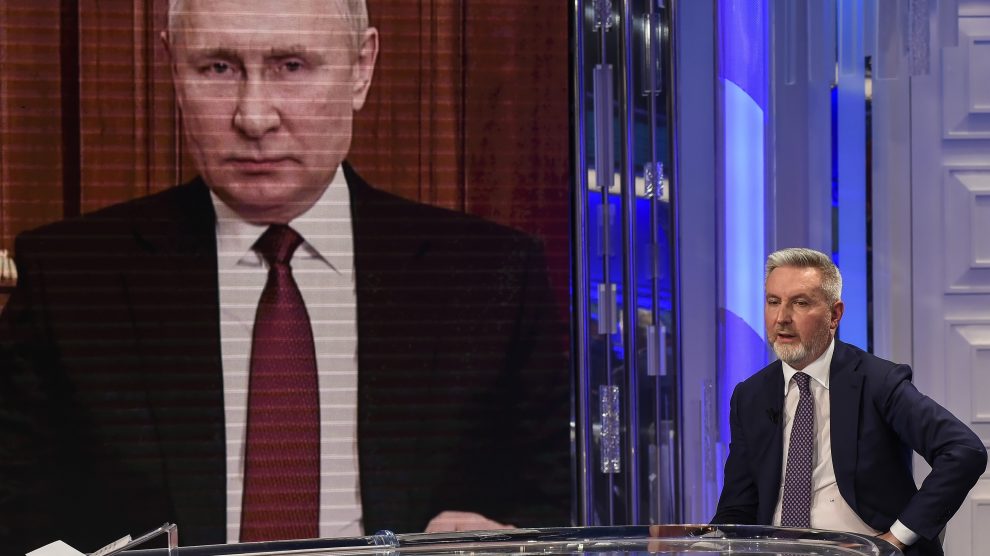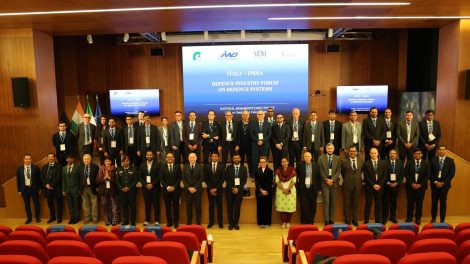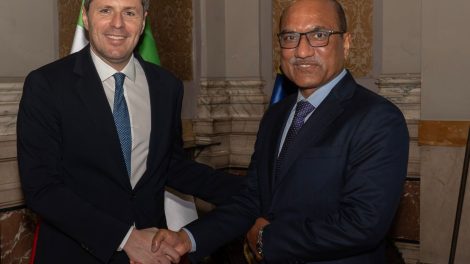We’re not in a Cold War, and there’s no Iron Curtain about to rise across Europe. Italy’s Defence Minister Lorenzo Guerini explained that the situation is wholly different: the world is not coalescing around two blocs because Russian President Vladimir Putin is isolated, as it became clear with Wednesday’s United Nations vote condemning Russia’s invasion of Ukraine.
Speaking at Metropolis with Repubblica’s editor-in-chief Maurizio Molinari, the official explained that Mr Putin’s objectives “have not been reached yet. There’s an unexpected slowness. He underestimated the resistance of the Ukrainian forces and the heroic resistance of the citizens.” And NATO was impressed, too, he added.
Circumstances have favoured Kyiv’s plight. So far, said the minister, Moscow has avoided employing its full military strength, partly because “everything is being recorded live by the world’s public opinion” through the internet. And the Kremlin didn’t want to add complete global isolation to the scorn it already elicited by bombing populated centres.
That, however, is changing – for the worse, as the Russian use of force has escalated “because [Mr] Putin needs results.” That’s also the fault of his collaborators, continued Mr Guerini, who are enabling his “unheard-of aggressivity” – including through nuclear threats.
The situation could become “explosive”, but that’s not changing the West’s resolve; “aid and support for Ukraine is not only lawful, it is our duty, including [through] military supplies. We are collaborating in the defence of a people attacked in defiance of the UN charter.”
With regard to ongoing negotiations, the defence minister believes they depend on how the next hours unfold. His impression, he said, is that Mr Putin wants the capitulation of Kyiv along with Ukrainian President Volodymyr Zelensky, having intensified the offensive to tilt the negotiating table towards his side.
When asked if Italy will be increasing military spending, as Prime Minister Mario Draghi called for on Tuesday, Mr Guerini remarked that the situation “requires us to do more. Not only financially, but also in terms of updating the military instrument.”
He also underscored that since his nomination to defence minister – that is, September 2019 –, the budget had grown from 22,8 to 25,8 billion euros, and there had been “a quantum leap in investments.”
Moving on, the official reiterated his support for the development of a European defence force to strengthen “the European pillar of our security architecture. The other is the Transatlantic one,” he added.
“We are working on the Strategic Compass, and I believe that the conditions are in place to conclude the work within the next two months, during the French presidency. But building European defence means taking courageous political decisions and investing resources.”





